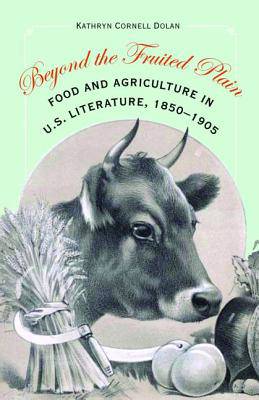
- Afhalen na 1 uur in een winkel met voorraad
- Gratis thuislevering in België vanaf € 30
- Ruim aanbod met 7 miljoen producten
- Afhalen na 1 uur in een winkel met voorraad
- Gratis thuislevering in België vanaf € 30
- Ruim aanbod met 7 miljoen producten
Beyond the Fruited Plain
Food and Agriculture in U.S. Literature, 1850-1905
Kathryn Cornell DolanOmschrijving
Agriculture in the United States has changed dramatically in the last two hundred years. Economic transformation marked by the expansion of the industrial economy and big business has contributed to an increase in industrial food production. Amid this change, policymakers and cultural critics have debated the best way to produce food and wealth for an expanding population with imperialistic tendencies.
In a sweeping overview, Beyond the Fruited Plain traces the connections between nineteenth-century literature, agriculture, and U.S. territorial and economic expansion. Bringing together theories of globalization and ecocriticism, Kathryn Cornell Dolan offers new readings on the texts of such literary figures as Herman Melville, Frank Norris, Mark Twain, Henry David Thoreau, and Harriet Beecher Stowe as they examine conflicts of food, labor, class, race, gender, and time--issues still influencing U.S. food politics today. Beyond the Fruited Plain shows how these authors use their literature to imagine agricultural alternatives to national practices and in so doing prefigure twenty-first-century concerns about globalization, resource depletion, food security, and the relation of industrial agriculture to pollution, disease, and climate change.
Specificaties
Betrokkenen
- Auteur(s):
- Uitgeverij:
Inhoud
- Aantal bladzijden:
- 288
- Taal:
- Engels
Eigenschappen
- Productcode (EAN):
- 9780803249882
- Verschijningsdatum:
- 1/12/2014
- Uitvoering:
- Hardcover
- Formaat:
- Genaaid
- Afmetingen:
- 140 mm x 225 mm
- Gewicht:
- 508 g

Alleen bij Standaard Boekhandel
Beoordelingen
We publiceren alleen reviews die voldoen aan de voorwaarden voor reviews. Bekijk onze voorwaarden voor reviews.











